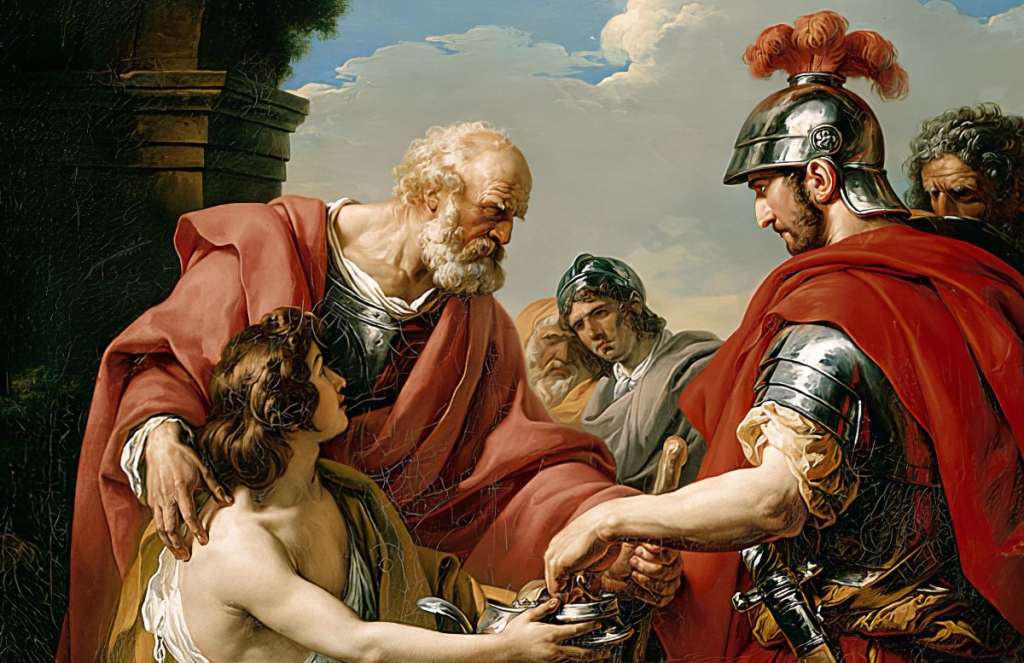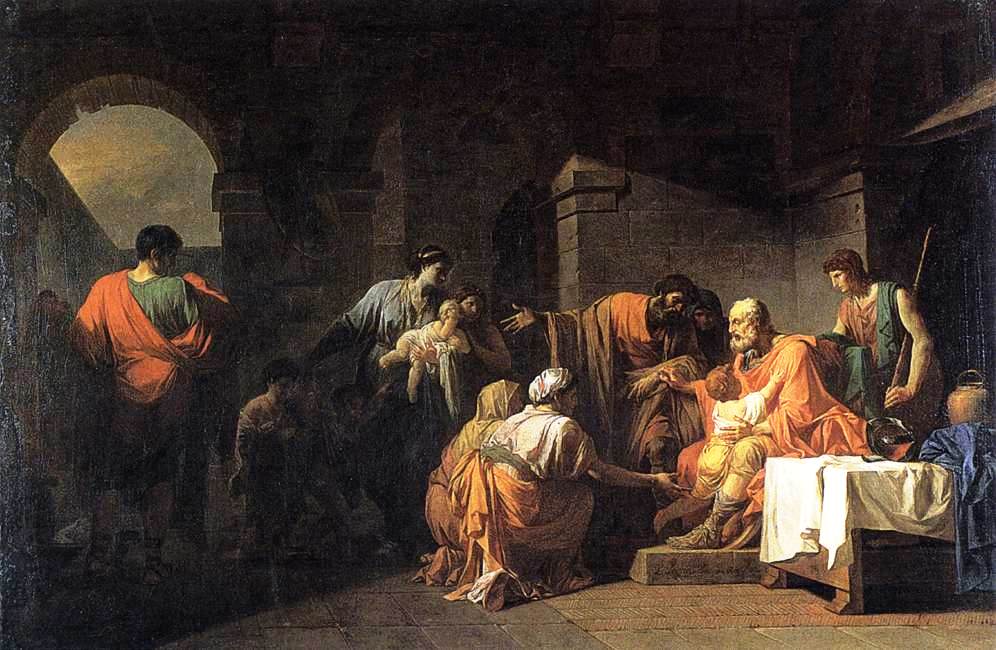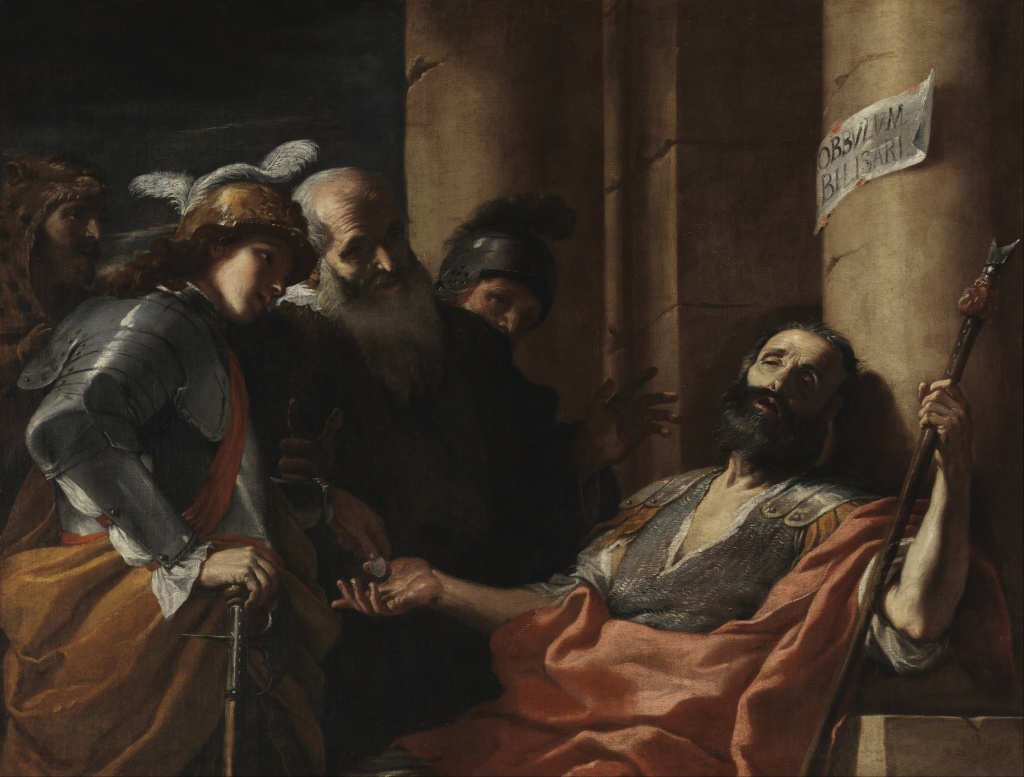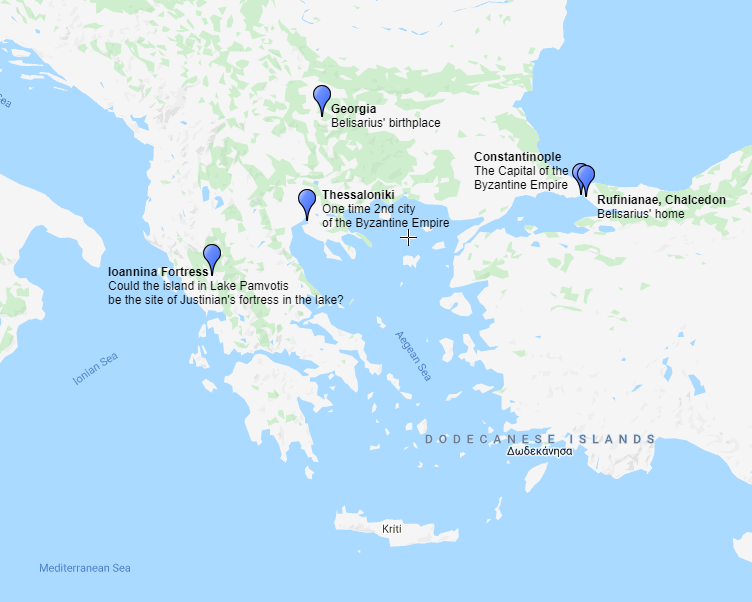Antonina Speaks – a fiction
A dramatic monologue for an older actress. I meant to capture Antonina in a 10 minute performance but she is such a rich character that I kept going. There are a lot of beat changes and I hope to have written a vehicle to show off an actress’ range from high status to low as well as the breadth of experience of this fascinating woman’s life – burlesque dancer/wanton, patrician, mother, schemer, murderess, lover, indispensable wife and adulteress.
As a performance piece it can go over a minimum of 10, 15 or 20 minutes but stopping at these points. Of course, to realize this in live performance an actress adept at using silence together with the natural process of transferring the written word to the stage, may see the piece run longer. The time estimates are based on my own audio rendition of it which are placed in italics through the text at the closest natural finish.
Historical notes to follow in a separate blog post.
Enjoy.
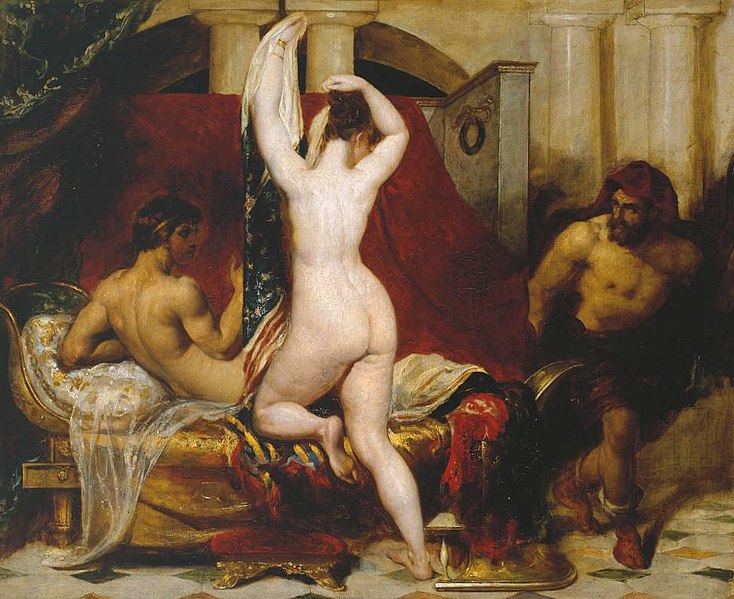
Theodosius, you take my breath away. You know, you do. You know you are unique, don’t you? Unique and precious and indispensable. Dear, dear boy. Tell me again, how I drive you wild with the wanting of me, all of me, all of my luxurious, ample, self – how my breasts were made to be cupped in your palms and my round, ripe, bottom the soft, easy, handle of the stirrup for your ride. Ride and ride and ride. This is why I invite you to my bath. I can’t get enough of you – your energy, your boldness, your vitality, your desire to please me, pleasure me: come for me, relish in my experience. Let me teach you the fringe benefits I learnt in burlesque.
Theodosius, what a fitting name – God’s gift. Yes, you are. God’s gift to me. Come suckle at my breast once again.
Theodosius? Why do you shrink away? Who frightens you? Come back!
Hello. Hello. Who approaches? Who dares?
Lucia! I said we were not to be disturbed. Who? Soldiers? Flavio? Here? Now? He is supposed to be with his army in the East.
Perfume! Now. Strong perfume! Hurry! And Lucia, do not let him in here until I am ready to receive him. Go, quickly.
He mustn’t suspect.
The fool.
What is he doing back so early? I sent missives that I would be heading out at month’s end. Someone has been in his ear. It couldn’t be Constantine this time. Silencing him was a trifling afternoon well spent. The egotist, thinking he could besmirch me, to Flavio. If I could bring down the Pope with a little diplomatic entanglement what challenge was a boy masquerading as a Byzantine General?
Hmm. Perhaps it was one of the bond-slaves, but who? After the example I made of poor, timid, little Macedonia? May the snitch spend eternity searching for her tongue in Hell.
Breathe, Antonina, breathe. Flavio worships you. When have you failed at turning the head of that simpleton? I should have suspected the softness of what that armour enclosed. I thought I was marrying a god, a famous general, a champion of the people – victorious in the East – rich in the plunders of war – baron of his own making. And what did I get? The armour of a warrior hiding a simpering soul, abject, apologetic, forgiving, god-fearing servant of Christ ready to run back at my beck and call.
Sh! Listen. Can you hear it? Footsteps. A weighted tread. Still in armour?
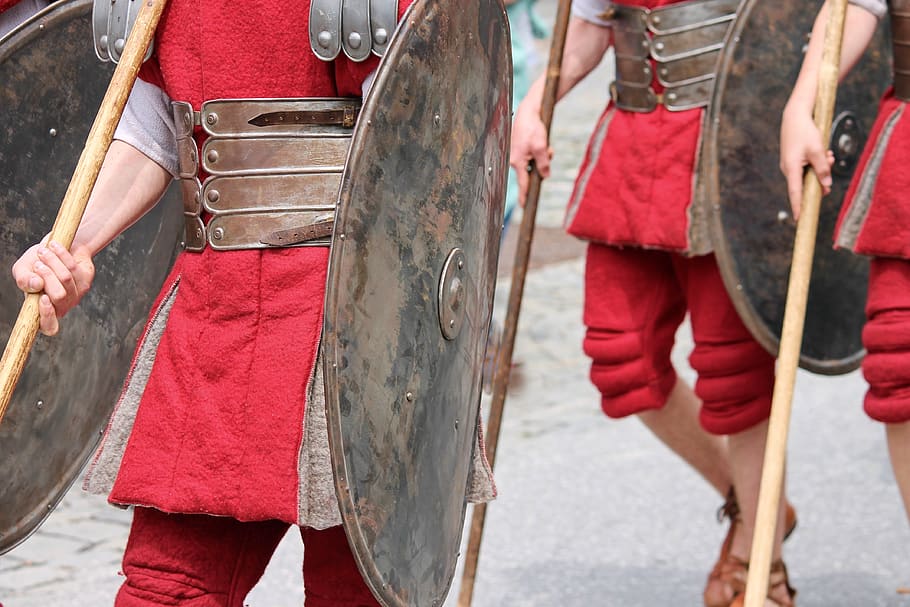
Photi! Is your step-father here too?
No? Flavio couldn’t get away?
Oh, what a shame.
But you did. Just look at you. Were you in such haste to see me that you left the battlefield fully armed? Photi? Is there a coup going on in the capital and no one’s told me?
Smile. I’m teasing you. Why so dour? Aren’t you pleased to see your Mama? Come here and take my hands. Put that spear down, you could poke an eye out with it.
My eye. I hope that’s not your point? My darling son, is it?
Of course, not. My boy, how I’ve missed you.
What? Where’s Theodosius? Why he’s here, in Constantinople. I’m not privy to his every movement. Why do you ask? You’ll see him soon I’m sure.
Now, I will not have you wearing armour in the house. Not in the capital
You need a bath. The water hasn’t gone cold. I’ll leave you to it and see you in the dining hall. We’ll have a suckling pig to celebrate your arrival. Ioannina will be so excited to see her big brother and hear all your news.
Now really, you must bathe. I’ll not have you… Photius where are you going?
I told you Theodosius isn’t here. Come back. Stop banging doors. What do you mean he has to answer to Flavio?
In what way, in God’s Name, has Theodosius offended Flavio? Don’t look at me with accusing eyes. What have I done to offend? Well, speak up. Out with it. Tell me my sin. Blasphemy? In God’s Name… Really? Again? You’ve travelled a thousand stades to tell me to watch my tongue?
Oh, Flavio wills me to return with you to the East at the end of the week? First you have business with Theodosius?
Well, he’s not here. Whatever you are holding against him, resolve it before dinner. I’ll not have you ruining your welcoming feast.
On second thoughts, go. Go and wash in the Bath of Zeuxippus. I’ll not have you muddy my water. May the waters of Zeus cleanse your ungrateful, sanctimonious soul.
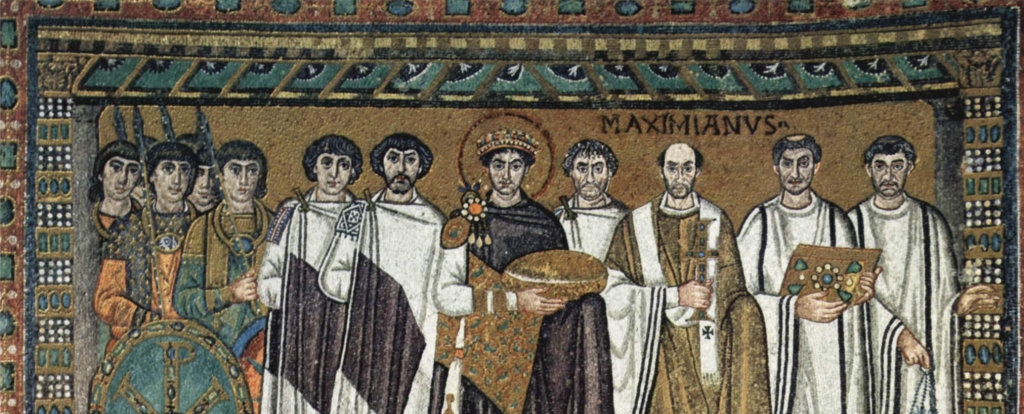
Devil take them both – father and step-son – traitor son. He’s my boy. Flavio had no part in his making but he’s made the boy his creature. Treats him like his own. Favours and shields him on the battlefront. He’s making him soft in his own image. A true believer. The boy disdains his own mother in favour of Flavio the faithful, the warrior, the benevolent, the pious soft cock.
Flavio actually believes all that religious tripe he spouts, “The alliance of God follows those who put justice forward.” He doesn’t just pray before a battle, he fasts and he expects the men to follow his example.
What? No alcohol! Try telling that to his Huns! The fool did, and then had to kill a couple of them for insubordination. Ha! How Christianly is that? Ok, so manslaughter amongst the ranks can’t go unpunished – but really, that’s what Huns do – get drunk and kill each other. If he doesn’t like it then hire different mercenaries – surely they aren’t the only warriors to handle a bow on the back of a horse?
Some …may blame me. But I’m not the cause of his officer’s insubordination. He knew what I was when he married me … and forgave me, as good Christians do.
He never asked if I wanted to be forgiven.
No, I’m not to blame for the paucity of his officers’ respect. I know the temperature of his men, personally. Have I not followed him into every theatre of war, thus far? He should look to his strictures over them. The fool prohibits his men their due – plunder should always follow victory. Emperor Justinian tarries with their salaries, and then Flavio reprimands their plundering. Hasn’t someone told him that that is what soldiers do after a siege – sack the city, take its riches, humble it!
He’ll need an act of God to prevent them raiding for their spoils in Persia. Persia’s no small theatre of war bounded by sea nor hemmed intro a strip by desert. Am I to be accused of sleeping with every Roman soldier that faces Khusro?
(c. 10 mins)
But Flavio is the Great Belisarius, the protector of the people – the shepherd who has brought Carthage and Italy back into the fold – resurrecting the Roman Empire of old, the Catholic West rejoining the Byzantine East. He could be more than a mere general but he denies his ambition.
Don’t think he hasn’t any. Why else did he sup on Vittigis’ table, sitting in Vittigis’ throne and wearing his barbarian crown? Vittigis saw it, as I did and as did the men. He sat there. The sceptre was on his table. His highly effective fighting militia flanked him at the feast – taking their places like noblemen, unable to claim a permanent seat. Those spoils were for Justinian to mete out. Where was the victory for them? Instead, the great and honourable Belisarius denied them and like a monk retreating from the world denied himself and denied me, my due.

You see, I deserve to be Empress. I’d be a great Empress. A brave Empress. The crown would finish my coiffure just as well – no, better than hers! My eyes would twinkle like living jewels between the crown’s tresses of pearls that would frame my face? And my face – so more deserving of the honour than Theodora’s clumsy nose and owlish eyes. How can she do those gems justice when my face would draw a better picture ensconced in that crown?
A pity she hooked Justinian before I did -that whitewashed palace-boy, timid of his own shadow. Who would have thought he could survive as Emperor? He should have gone down in the riots. Who is he but the nephew of a usurping pig-farmer peasant-emperor? Poor Hypatius was the rightful heir.
He was relegated to the role of diplomat, couldn’t control an army in his dreams, shivers at the thought of combat – I should know – he talked in his sleep.
Justinian thanked God for his mercy during the riots – but really he should have lit a candle to Belisarius’ perversity – who wouldn’t take the crown when it’s there for the taking? His army in the capital raring to go – so close to the palace. The people were rising and the Emperor was preparing a ship to slink away in defeat.
No. My husband swore an oath of loyalty to his Emperor before his God.
What about his loyalty to me? He would save the people of the former empire but would massacre our own in the Hippodrome. My people – my city- my confederates – my family -in my Hippodrome. Were not my father and grandfather the best charioteers in the city? Did my brother not compete? Did I not learn to dance alongside Theodora there? Did the great Belisarius have to massacre all of the trapped rioters – all of my people whose life the Hippodrome defined? He wasn’t husband enough to save them.
He wasn’t husband enough to give me the crown I deserve. Theodora should be kissing the hem of my robes, yet here I am subject to her bidding. Theodora – too squeamish to carry out her own commands. She could never do what I have done.

Edisonblus / CC BY-SA (https://creativecommons.org/licenses/by-sa/3.0)
Did I not dispose of Silverius, the Vicar of Christ? Theodora charged us with this duty for the protection she offers Flavio. “Get rid of that priest, “she commanded, “He offers impediments to my Justinian’s vision.” Flavio was mortified. He could not believe that she would go so far.
Not Silverius. Not the Pope. Sacrilege.

Flavio would defend the Church to the point of stupidity, weakening his forces, fragmenting his army marching north, compromising his strength to answer the call for aid from every insignificant priest who appealed to him. There was no way that he could bring about the death of the Pontif. Not even to unite the Church.
No, the shirker, the weakling, false man. Even the eunuch Narses has more balls.
He left the Pope to me.
I had to keep us in Justinian’s good graces.
I had to order the men to find witnesses to accuse Silverius of betraying our forces to the Goths.
I manoeuvred Silverius to stand trial.
When the wind blew in Silverius’ favour, I was the one to poison his cup. So simple, so difficult for Flavio.
He couldn’t choose his emperor over his god. The coward. He couldn’t put his immortal soul on the line but he didn’t mind if his wife did.
And I did.
I sacrificed my soul.
(15-16 mins)
Let me go to perdition, then how would he survive? He thanked me for it afterwards but what are a few clumsy kisses from a man positioned to be Emperor who can’t even seize the day when it’s handed to him? He took Sicily and Naples in his stride on the way to the Pincian Palace in Rome where he ran the campaign for a year and then he was handed Ravenna with the Gothic crown… and he grasped it with both hands… and gave it to Justinian.
Such an exasperating fool. And I pandered to him…
Shall I prepare for your triumph Flavio? Shall I make ready for a feast? Flavio? No? What? Chastised and sent to fight the Persians?
Don’t go Flavio. The atmosphere is torpid in the capital. It will only change when a fresh gust surges through the palace. A gust that will blow away the discontent and leave a new emperor on the throne. They are calling for you. Byzantium needs a strong military man on the throne. One who has seen the extent of the empire and knows its people and their needs. A hero who will be respected – who reunited the empire with his own sweat. My hero. My husband. My lover. My king.
No, No you’re not a simple soldier. Don’t make me laugh. You, are a great tactician. The way you sum up the enemy on the battlefield you can sum up the senate just the same.
No? Then let me tell you how it will go. We will have the support of the people – they worship you and despise Justinian and his taxes and his laws, and the support of the Patricians – John the Treasurer is preparing to fund a revolution – why let it be someone else when it could be you? You have the alliance of God.
Flavio? Where are you going? Sheath your sword. Justinian can wait. He’s no fool. He won’t think you are behind any of this, I will see to it. Go face Khusro’s army, far away from the city. When you are deep in battle I will take care of matters. No one will ever think you were involved in any coup. I will tell Theodora. We will set a trap for the treasurer. Justinian will never suspect you. Leave me in the capital to manage matters.
Come away East and don’t get involved? Really, Flavio, I think it better if I stayed. I could be of better use to you here.
The East is safe enough away from the capital? Yes, but…
Is there another reason why I don’t want to come with you?
Truth be told, I’m tired, Flavio.
I’m tired of sieges and living on horseback and eating dust – dragging my children from one end of the empire to the other. They are not all like my Photi to follow in your footsteps. Ioannina will need a husband. Your godson, Theodosius, is too fragile for life in the saddle, too sensitive for the rumours of your men – their innuendo. It’s hurtful – too dreadful to think about. The accusations, the jeering behind his back. It hurts me Flavio. Am I not a faithful wife? Have I not stood through all of your campaigns the sounding board of your most private thoughts? Have I not organised and ordered your water and supplies? Have I not spoken for you, of your concerns to Theodora?
And now you don’t trust me to stay in the Capital.
No, no, I’m not crying. You don’t understand me. Of course I am not as young as you are. You don’t understand. But you will never understand, never having children, how a woman’s body is ravaged by child birth. I haven’t the will to go east another time. I can’t do it right now. Please Flavio, take pity on my situation, my health
Yes, maybe I’ll feel better if I tarry in the Capital. Have therapeutic baths, wait on Theodora in the Palace. I’ll see about finding Ioannina a most suitable husband.
What did you say?
Find a bride for Theodosius?
He is old enough to form a marital alliance.
Release him from our household? Oh, but I couldn’t right now, he relieves my wilted spirit. He is such a comfort to me. Take Photius. Leave young Theodosius with me. We will follow in a few weeks when I am feeling rejuvenated.
Fool!
But why does he send me Photius, now? What’s Flavio’s envious little shadow up to? Why has he left his father’s side? Why does he seek Theodosius?
Has Flavio woken up?
Will I be reduced to begging his mercy?
No, I think not.
Perhaps… Procopius is right. Perhaps, I really am a witch.
(over 21 mins)

